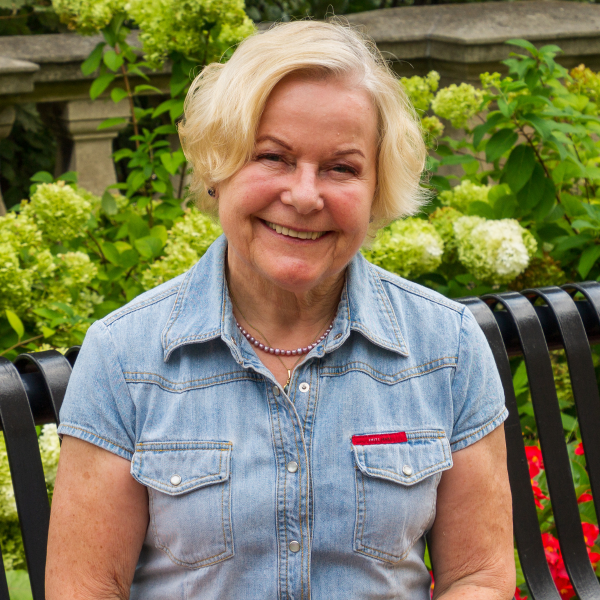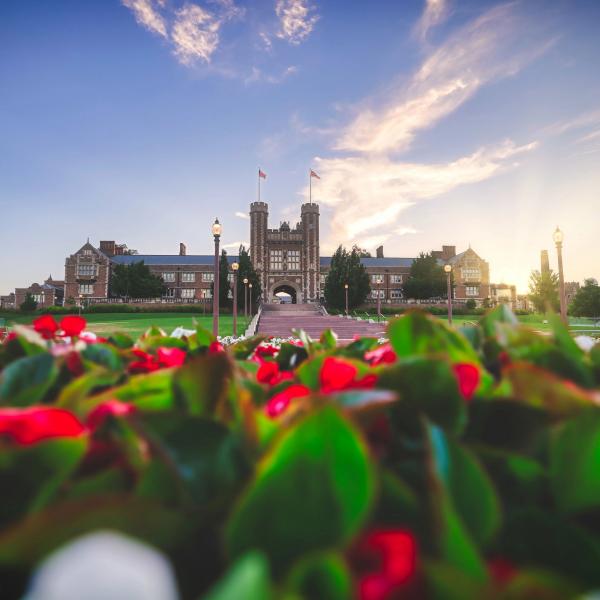The chairs and directors of Humanities departments and programs at Washington University in St. Louis have prepared a statement on the value of the humanities in times of crisis. In times of severe challenges, it is crucial that we avail ourselves of the invaluable resources that humanities scholarship and education offer.
We are finishing our grading, and concluding a spring filled with hurried changes to our teaching strategies and a dramatic shift in our relationship to our institutions. Now it is time to engage in the critical process of reflection, as we seek a way forward for the coming year, filled as it is with uncertainties. This much is clear: the viral pandemic transforming our lives has amplified a sense of crisis that has, for years, permeated higher education. But while colleges and universities may now seem to be at the brink of a long-anticipated transformation, this is just one aspect of a broader condition of systemic crisis that may well come to define the early twenty-first century. The ecological, economic, political, and other systems that support organized human life seem poised for precipitous and turbulent change.
In normal times, we tend to identify our own value in terms particular to our disciplines. Helpful and clarifying as that may be, it inclines us towards formulations of special, exclusionary status for schools, divisions, and departments. These are also not normal times. We find in this moment an occasion to return to a foundational question: What is the purpose of a University and of its constituent parts, and what of value does it provide to society in a moment of profound uncertainty?
A pandemic, like an ecological crisis, can make the purpose of a University both clearer and more obscure. All of our fields have important voices to offer at this moment and provide perspectives that are not separable from one another. Scientific and technical knowledge is vital to understanding the biology of a disease and therefore to the policy measures and treatments needed to stop it. The social sciences illuminate the human factors that affect viral spread and the social factors that shape its impacts. We are making a case for the profound ways the humanities can both inform and shape our individual and collective responses to this unique moment, and lead us forward with a new self-awareness, a shared sense of purpose, and a sharper recognition of our vital connections to our multiple communities.
We are chairs and directors of humanities departments and programs at Washington University in St. Louis, and we represent a broad group of thinkers, writers and practitioners in humanistic disciplines. In this statement we attempt to give voice to our concerted purpose within the University and the world, a purpose grounded in a range of distinct disciplines, methods, and subject matter. We also invite our colleagues in other divisions and schools to speak from their expertise and experience, and so join with us to affirm the purpose of universities at this time.
Humanities research advances certain values and creates new forms of knowledge, changing what we know about the world. It can provide new frameworks for understanding the very meaning of “value” in our collective life. In particular, humanistic inquiry offers at least two productive responses in our contemporary moment: that of a pathway of personal and collective regeneration in the face of trauma, challenge and change, and also a range of options for critical reflection as we evaluate both our near and longer-term futures. Intensive training in our programs imparts several important benefits to individual students, and through them, to society at large:
- Pedagogy focused on interpersonal intellectual engagement. Small classes and one-on-one advising allow us to know our students. We understand their struggles because they use the scholarship informing our courses to think through with us what this time means to them and what it means more broadly for our communities. We focus on the quality of engagement, building trust with our students to foster deep engagement and pay close attention to how they respond to the material and how best to challenge them to think in new ways.
-
Building critical foundational skills. Through critical reflection our courses enable students to gain perspective on this moment and to put it in the context of other moments of crisis in different times and places, to appreciate how people have thought and written about them, and to use the arts to restore a sense of productive human community. The skills of critical empathy and dialogue that students gain in our classes allow them to engage more effectively with others; and as they see examples of other modes of living, they become better at thinking “outside the box” when they face new challenges. Both of these skillsets, ideally, sharpen their flexibility and resilience. Effective writing and speaking afford them the ability to communicate their knowledge to others.
-
Recognizing and navigating ethical dilemmas. Personal development and civic involvement require us to wrestle with values and questions of meaning throughout our lives, and courses in philosophy, history, literature and the arts challenge students to think through such problems—both in times of crisis and times of relative normalcy.
-
Assessing the value and appropriate roles of technology and innovation. While innovation is itself a necessary component of the university, humanities courses “close the loop” of critical interpretation and reflection, allowing students to weigh and assess the increasingly central role of technology and other scientific products, and to assess their strengths and weaknesses in shaping our contemporary human connection and community.
-
Interpretive humanistic scholarship, whether in history, philosophy, literature, the arts, or interdisciplinary studies like WGSS and AFAS, provides critical lenses on how ruptures in human communities have developed and grown. Through critical analysis of cultural productions and discourses constructing gender, race, sexuality, and class, such scholarship can help both bridge and repair those ruptures. It equips students to interpret conflicting truth claims and wrestle with the realities of social, cultural, and ethnic diversity.
-
Humanistic scholarship also grapples with foundational questions of society. Humanities fields, coupled with insights from the social sciences, allow us to work through the big questions, which seem even bigger in times like ours:
-
What are our responsibilities in a democracy in a time of crisis?
-
What do we owe each other?
-
How do we balance rights with obligations in our behavior?
-
How can we better communicate with each other, through language, arts, and technology, so that we can work effectively together, to restore the body politic, and to reshape our community and how we understand it?
-
What knowledge can we bring to bear in our understanding of international communities and our place in the global, transnational landscape?
-
What can we learn from other societies’ pasts and presents that can help us understand the major problems we face in our world?
-
At this moment we are in need of a restoration of hope and a reconsideration of our ability to think nimbly and flexibly about our collective future. Along with colleagues in other parts of the university, we welcome discussion about paths forward. We must be greater than the sum of our disciplinary parts to tackle the challenges in front of us. Our students, and our communities, need these conversations that humanistic inquiry can provide. In conjunction with our colleagues across Arts & Sciences, we are eager to bring our perspectives to the university’s conversations about our current and future crises.
Signed,
Jean Allman, J. H. Hexter Professor in the Humanities
Director, Center for the Humanities
J. Andrew Brown, Professor of Spanish
Chair, Department of Romance Languages & Literatures
Pannill Camp, Associate Professor of Drama
Chair, Performing Arts Department
Elizabeth C. Childs, Etta and Mark Steinberg Professor of Art History
Chair, Department of Art History and Archaeology
Todd Decker, Paul Tietjens Professor of Music
Chair, Department of Music
Mary Ann Dzuback, Associate Professor of Women, Gender, and Sexuality Studies, Education, and History
Chair, Department of Women, Gender, and Sexuality Studies
Gerald Early, Merle Kling Professor of Modern Letters
Chair, Department of African and African-American Studies
Ignacio Infante, Associate Professor of Comparative Literature and Romance Languages & Literatures
Acting Director, Center for the Humanities
Peter J. Kastor, Samuel K. Eddy Professor
Chair, Department of History
Catherine Keane, Professor of Classics
Chair, Department of Classics
Hillel J. Kieval, Goldstein Professor of Jewish History and Thought
Chair, Department of Jewish, Islamic and Middle Eastern Studies
Joseph Loewenstein, Professor of English
Director, Humanities Digital Workshop and the Interdisciplinary Project in the Humanities
Laurie F. Maffly-Kipp, Archer Alexander Distinguished Professor in the Humanities
Director, Program in Religious Studies
Ron Mallon, Professor of Philosophy
Chair, Department of Philosophy; Director, Philosophy-Neuroscience-Psychology Program
Marvin Marcus, Professor of Japanese Language & Literature
Chair, Department of East Asian Languages and Cultures
Erin McGlothlin, Professor of German and Jewish Studies
Chair, Department of Germanic Languages & Literatures
Steven B. Miles, Professor of History
Director, East Asian Studies Program
Timothy J. Moore, John and Penelope Biggs Distinguished Professor
Interim Chair, Department of Classics
Mabel Moraña, William H. Gass Professor in Arts and Sciences
Director, Program in Latin American Studies
Anca Parvulescu, Professor of English
Interim Director, Program in Comparative Literature
Vincent Sherry, Howard Nemerov Professor in the Humanities
Chair, Department of English
Andrew Sobel, Professor of International and Area Studies
Director, Program in International and Area Studies
Gaylyn Studlar, David May Distinguished University Professor in the Humanities
Director, Program in Film & Media Studies
Lynne Tatlock, Hortense and Tobias Lewin Distinguished Professor in the Humanities
Director, Program in Comparative Literature
Abram Van Engen, Associate Professor of English
Interim Director, Program in American Culture Studies





